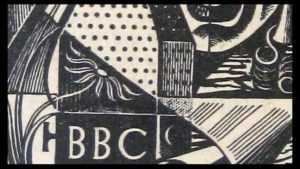This one-day University of Westminster CAMRI conference hosted by The British Library will interrogate emerging and pluralistic conceptions of radio modernism in relation to the BBC’s radio feature programmes.
As a creative nucleus, the personnel, editorial strategies and programming of the Features Department, to its closure in 1964, offer rich points of focus for British broadcasting’s complex entanglements with late modernism.
The recent re-evaluation of the theories, methodologies and historiographies used in scholarly considerations of radio programming, personnel and audiences across the twentieth century means that radio is becoming more firmly situated in its proper place within the media ecology of the last century and it is also increasingly located in its various cultural, creative, educational and political ‘ecologies’. Radio as a thing experienced and made sense of by individual listeners is receiving renewed attention; and there is also a broader acknowledgement of the inherent modernism of the medium and its forms in this period.
The conference explores, both through close reading and examination of wider cultural contexts, notions of remediation, intermediality, broadcast vernacular, emotion, listening constituencies, spatiality, technoculture, and more, with a view to encouraging further scholarly engagements with the various interpretations and interplays of ‘radio modernisms’ in 20th-century Britain.
Speakers include Todd Avery (Massachusetts Lowell), who will give the keynote lecture, Hugh Chignell (Bournemouth), Alex Goody (Oxford Brookes), David Hendy (Sussex), Kate Lacey (Sussex), Alex Lawrie (Edinburgh), Aasiya Lodhi (Westminster), Henry Mead (Teesside), Amanda Wrigley (Westminster) and John Wyver (Westminster).
More details about the day can be found on Research Fellow Amanda Wrigley’s website.
To register, please visit the British Library’s webpage or contacting a.lodhi@westminster.ac.uk.


